- Opinion
- 06 Apr 23
The Edge: Won't Get Fooled Again – A Hot Press Special

In the midst of extremely busy times for U2, The Edge offers a fascinating glimpse into his creative life, in a major Hot Press original. In the piece below, the guitarist – and producer of Songs Of Surrender – writes passionately about the inspiration behind the new album, the process of re-imagining some of U2's most beloved tracks, what he learned from Bono's memoir, and the importance of music as a force for change...
The acoustic idea, this sort of reimagined idea for Songs Of Surrender, was around for a while but two things happened simultaneously that made it seem like this was the moment. One was Bono’s book. The other was lockdown, where I had so much time on my hands that I felt this was the time to try out this idea.
Was it going to work? We didn’t know if it was going to work. And in that way, there was no commitment involved or expectations, so Songs Of Surrender and Bono’s book were parallel projects in that sense… and we love that in U2, we love those internal rhymes.
I did 50 or so rearrangements and on some it took a couple of different approaches before I got to the right one. ‘The Fly’ for instance was recorded in a different style… ‘Where The Streets Have No Name’, ‘Pride’ had various other arrangements that we didn’t follow through with.
We gave ourselves permission early on to abandon any sense of reverence for the definitive original version so we were open to new lyrics, new melody ideas, different tempo, different key, different musical sections, different motifs, anything that served the song…
We felt like the songs were strong enough to lend themselves to a different approach and still be the same song. We were excited that we could find arrangements that showed those songs in a very different light and gave them more dimension.
Pretty much everything started out with me on piano or acoustic guitar trying to figure out a tempo and a key and a basic vibe… And then we’d build it up from that, get something going and Bono would get a chance to sing and we’d figure out if it was going to work… And if it didn’t, sometimes we’d start again right there and then or start looking for other approaches.
Bono is singing like a bird right now. His range of interpretative skills has expanded over the years. He still has the high notes. We don’t want him to use them as often as we relied on them in the past but I think he is much more adept in the middle range. And on this record he is almost doing a spoken thing at times which is very effective, so I think he is a much better singer now that he was. Belting it out, as we did early on, had its value but this is much more interesting, where we are going.
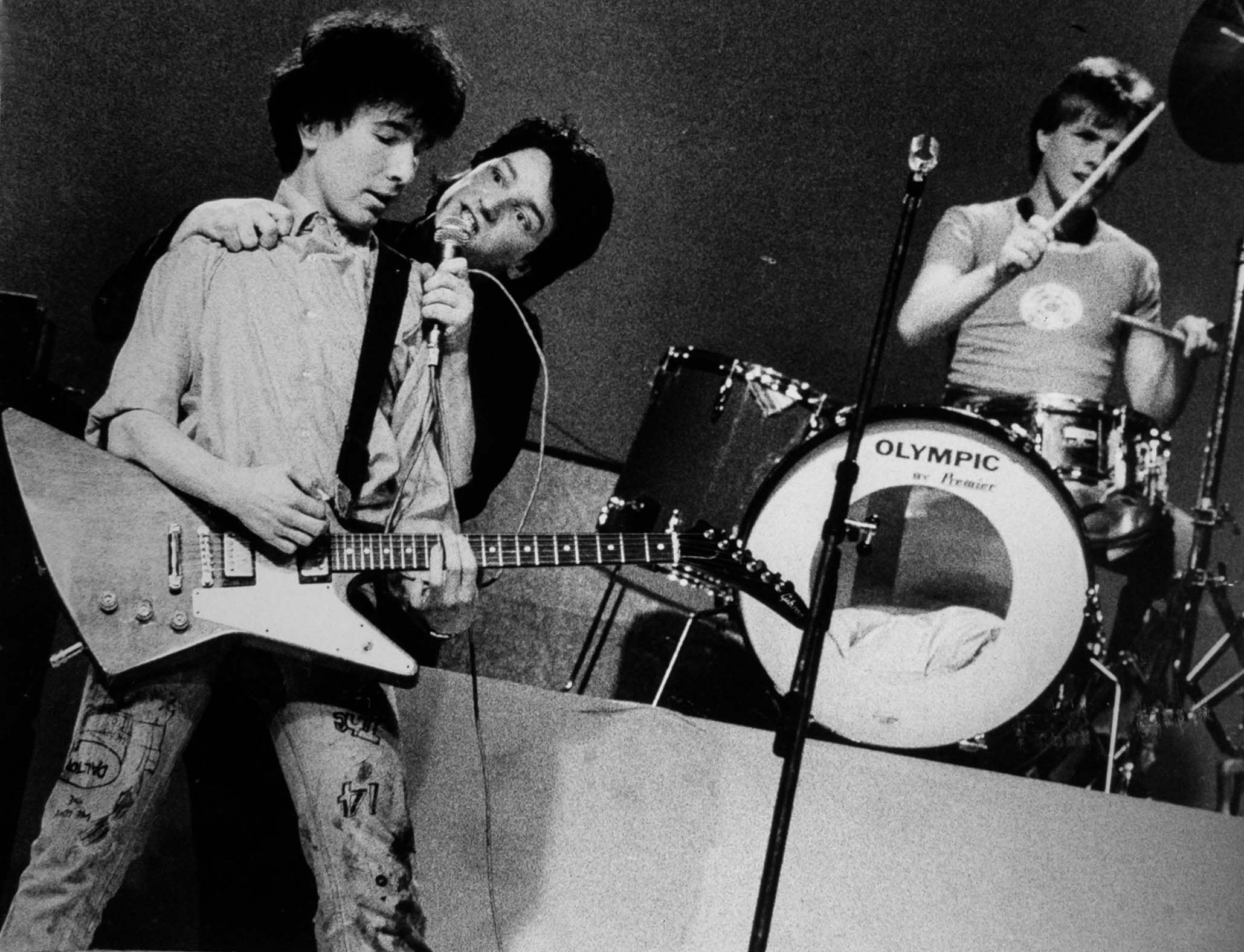
A VERY DIFFERENT EMPHASIS
A great song doesn’t necessarily have to be a hit song, it’s a song that crystallises an idea, an emotion, a thought, in a beautiful way… Some of the songs I chose, I just loved them but they weren’t necessarily big hits… ‘The Little Things That Give You Away’ was never a single, I just think it’s one of the best songs we’ve written recently… ‘Dirty Day’ was never a single, I just love that tune… ‘If God Will Send His Angels’ was a single at the time but this is a completely new version of that song.
So it was really about the songs… Was it a great song? And in that sense it’s subjective but there’s a part of me that thinks it’s empirical… you know, a great song is actually a great song no matter what people’s opinion.
I think ‘Stories For Boys’ is probably the most surprising because that song in its early form was like full on, post punk energy… A song written by boys about their interests and the place they find themselves in… This is completely reimagined and in fact, it’s me singing which is quite unusual…
The lyric is a complete rewrite and we wanted to write it about those boys but from the perspective of now, our perspective… So we’re writing about who we were and what was going on from a distance of time and experience, the place we now found ourselves in, and it lends a very different emphasis to the tune… I think it’s turned out to be a great interpretation, almost a new song.
We like the idea that these new versions are additive: rather than replacing the originals, they are alternatives. They are not in competition because the originals are classics for good reason. I don’t think we could have got to this collection without the help of the producers that worked on the original versions. I do love what we’ve done here but we are still, as always, indebted to the great people that we worked with… Steve Lilywhite, Brian Eno, Daniel Lanois, Flood, Jacknife Lee… all of them… We’re just very lucky to have these people in our creative lives.
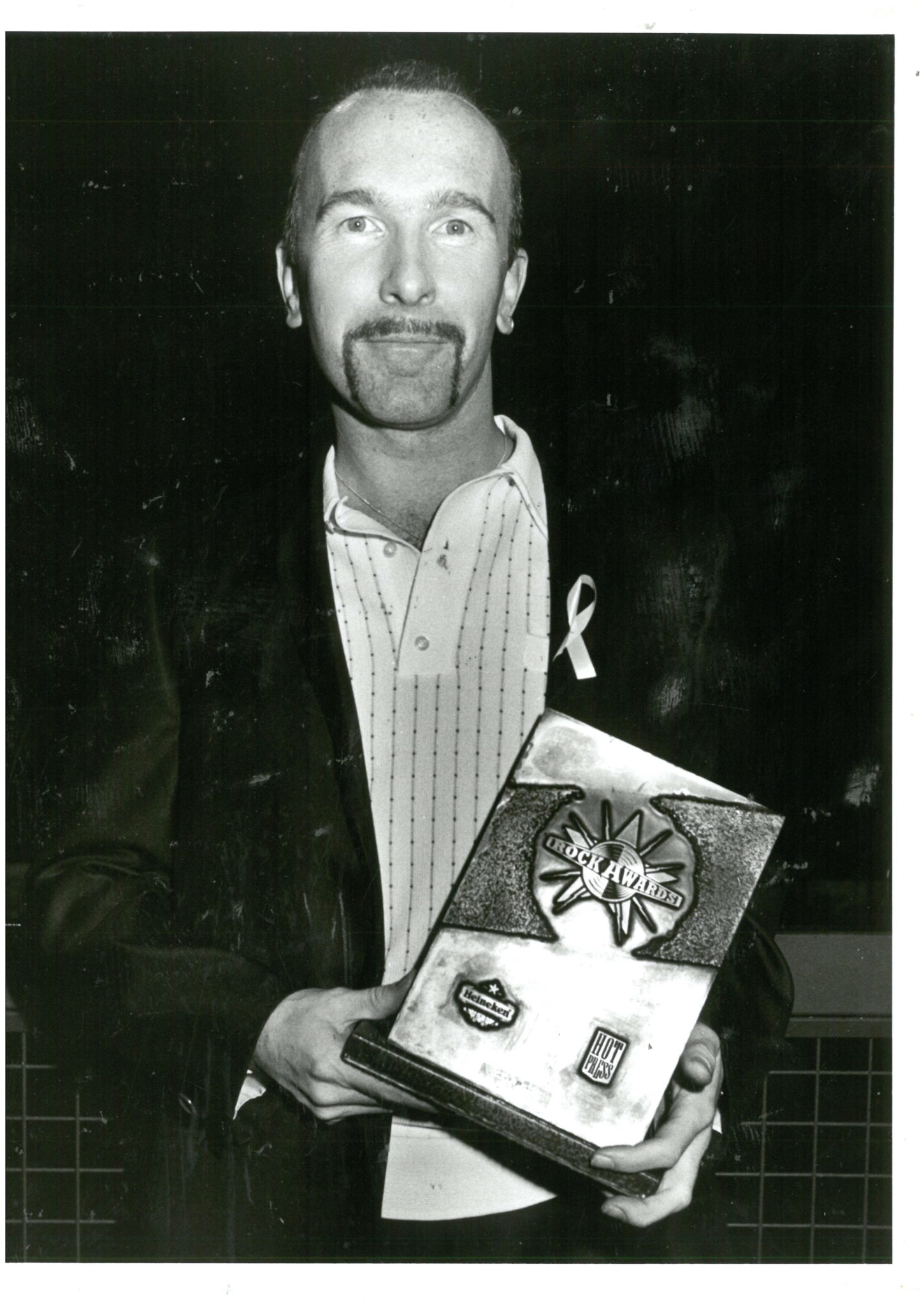
Credit: Michael Quinn
REACHING ACROSS THE AISLE
I was asked if I learned anything new, reading Bono’s book, Stories Of Surrender.
I knew about the early days obviously, most of the U2 stuff… but I didn’t know the detail of Bono’s work for the ONE Campaign and RED and Drop The Debt so intimately, so it was interesting to understand the strategies and the jeopardy of all of that.
I found that very compelling and it explained some of the stuff that, at the time, I found slightly challenging. The fact that Bono was hanging out with Republican politicians in the U.S., with values that I wouldn’t have seen eye to eye with at all, the likes of Senator Jesse Helms who single-handedly dismantled the National Endowment for the Arts because he was so offended by Robert Mapplethorpe’s photography. Helms was a very conservative man from the South, much older than us, he’s no longer with us, and his objection to AIDS, and the funding of AIDS research and treatment, was on a misguided moral basis.
Bono managed to turn him around and this guy, by the end of his life, was a great champion of funding of AIDS research around the world. And in reading Bono’s book I really understood the value and the power of his work and what he did, the reaching across the aisle… And it was those most uncomfortable and difficult meetings which actually moved the needle the most.
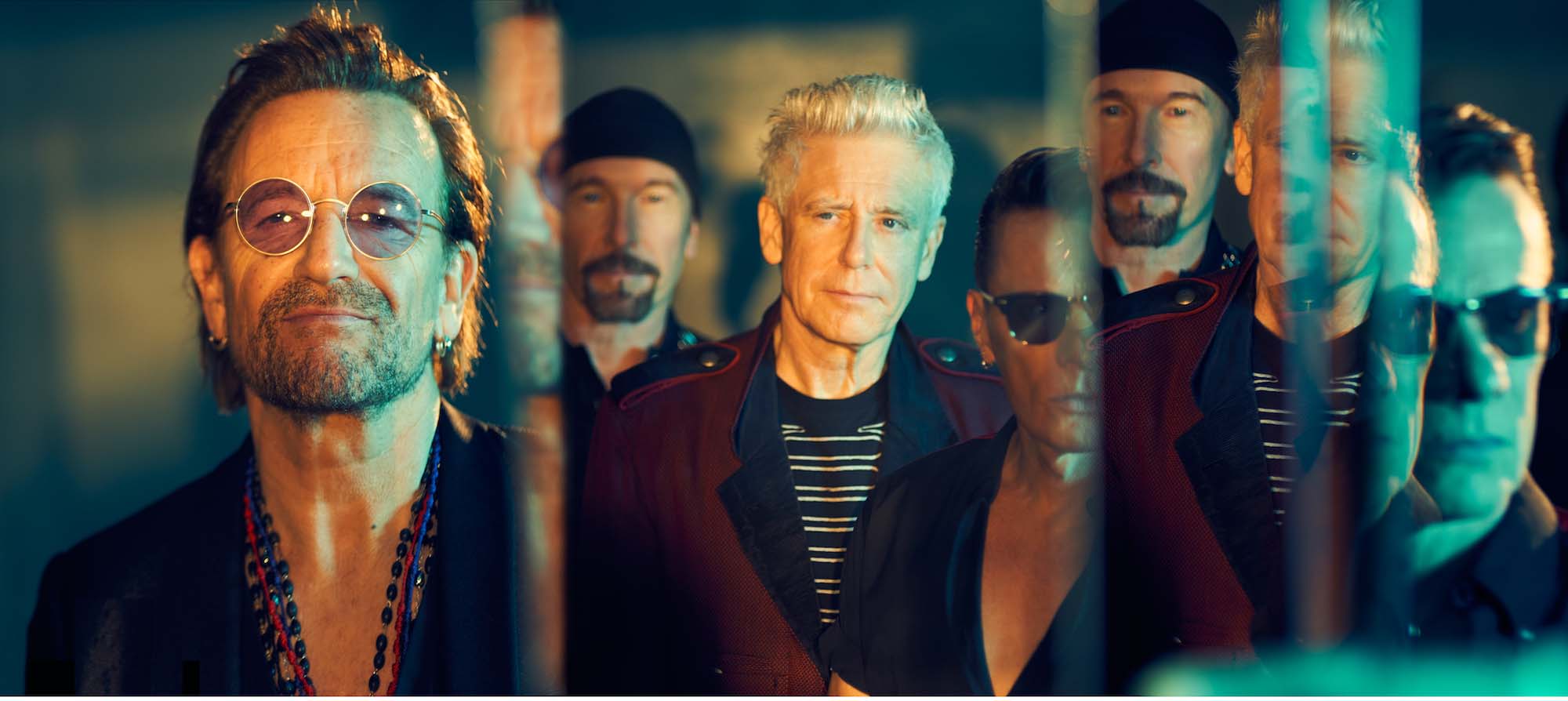
Credit: Kurt Iswarienko
A PARADIGM SHIFT
The Sphere in Las Vegas is a brand new class of entertainment venue. No one has ever seen the like of it, it’s light years ahead of anything else that’s out there. We see it as just this amazing canvas.
We’re still in this thrilling phase of figuring out what it can do and what we can do with it that works for our music and for U2 fans. But it is a paradigm shift, it won’t be possible to do what we will do in this venue anywhere else… So we won’t be touring whatever this concert is, it will only be able to be seen at this venue because it will be so much about the technology and what it allows us to do.
It is to do with the scale: it’s a completely immersive screen, and the sound controls again gives you the opportunity for totally immersive sound. You can literally give different audio experiences to different people in different seats. We’re just thrilled and honoured to be asked to open this venue.
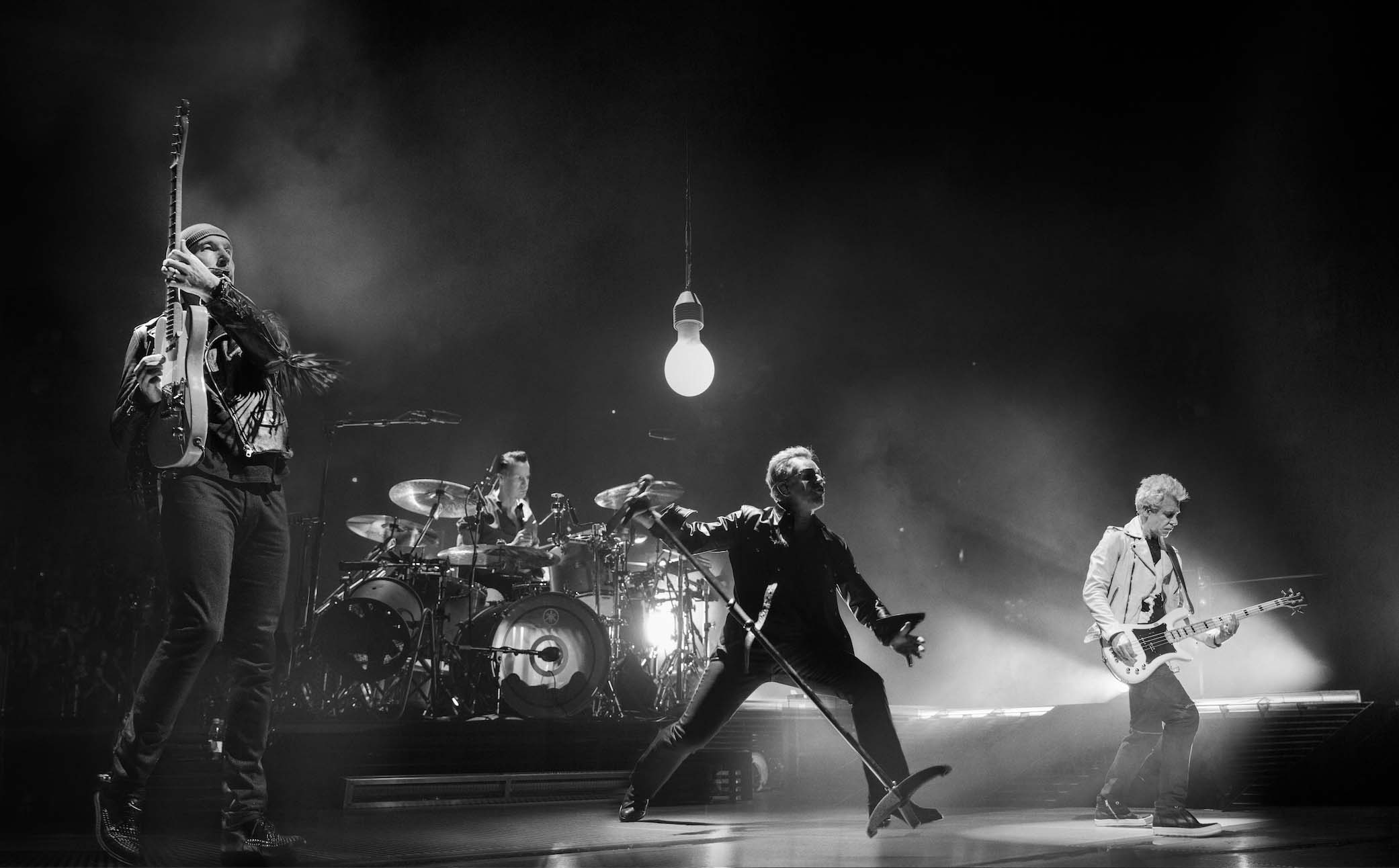
Credit: Sam Jones
VECTOR OF CHANGE
Music has at different times occupied a very special role for people because it seems to be like great poetry - a way to inspire and communicate things that people might not be able to communicate themselves, relate to things that are difficult to express… And it’s been very important at times.
I don’t think rock music has that same power currently but I think things come and go, there’s pendulum swings within the culture. Music, far from it going away, it’s being democratized to an incredible extent but with regard to rock music’s power to speak to people, we are due another wave of importance and I think it’s going to come... it’s time. Music has been a little asinine for the last number of years and now, there’s so much at stake, music is going to end up being a very important vector of change.
I’m reminded of The Who song, ‘Won’t Get Fooled Again’, and I think that’s the case - we hand on the torch to the next generation and just hope that they aren’t fooled again…
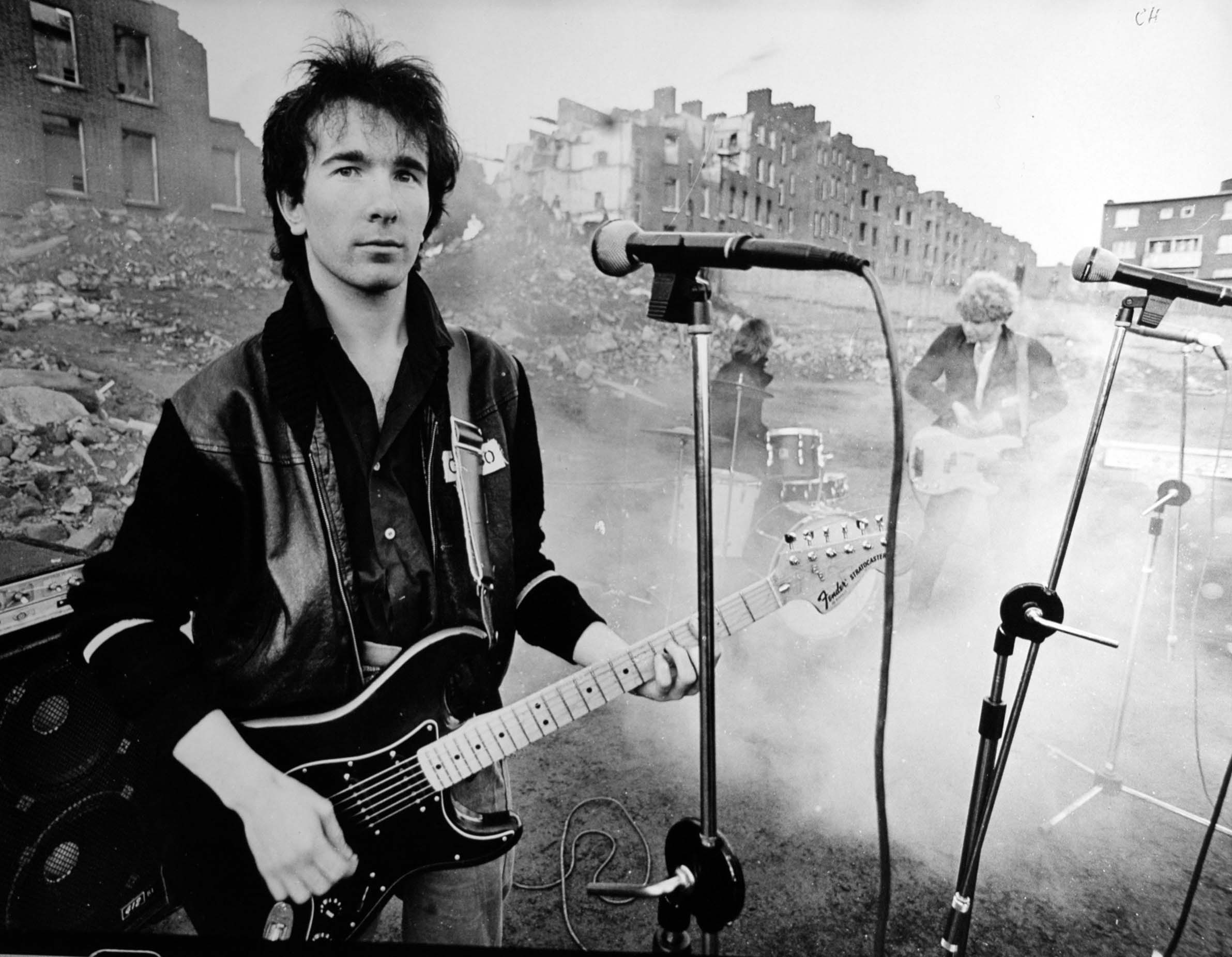
There's even more U2 content in the current issue of Hot Press, featuring cover star The Edge – available to pick up in shops now, or order online below:
RELATED

- Opinion
- 16 Mar 23
Album Review: U2, Songs Of Surrender

- Opinion
- 28 Dec 22








